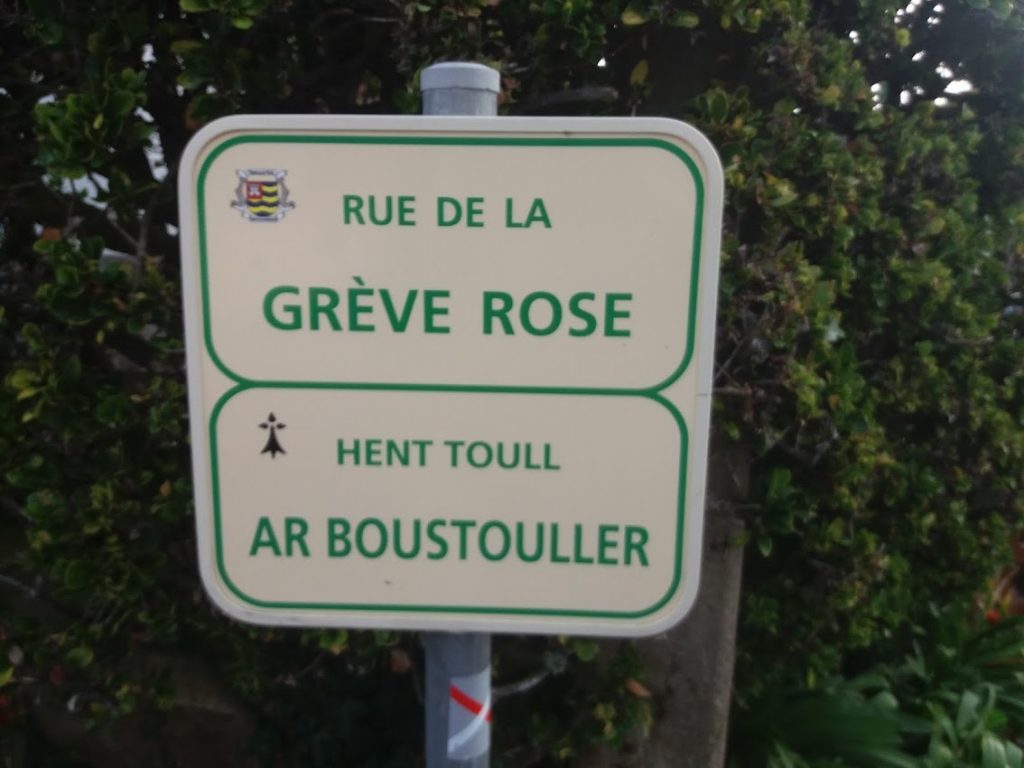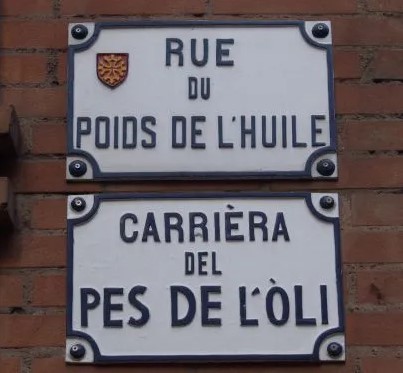By:
Michel Fraysse,
Head of Research Support Department, Toulouse Capitole University Libraries
« Estacion venenta, Capitòli, atencion, davalada a esquèrra » (1)
In the Toulouse metro, a foreign visitor may be surprised to hear this announcement in a mysterious language. “What is this tongue?” some tourists ask themselves. “Spanish, Catalan, French from Toulouse?”. It is Occitan, of course, the historical language of Occitanie. Similarly, passengers of public transport will hear Alsatian in Strasbourg or Breton and Gallo in Rennes. Is this possible in unilingual and Jacobin France?
But first, let’s have a look at the European Union’s language policy.
In October 2021, The European Union has 27 members States and 24 official languages. Every time new members have joined the EU, they have added their own national language to the list of official languages. Despite Brexit in 2020, English remains one of the official languages of the European Union thanks to Ireland and Malta.
Multilinguism is enshrined in the European Charter of Fundamental Rights.(2) Every EU citizen has the right to communicate with the European Union institutions in any of the 24 official languages, and the institutions are obliged to reply in the same language. It is well known that the Official Journal has 24 versions and EUR-Lex, the online gateway to EU Law provides the most comprehensive access to EU legal documents in all the official languages. A quote attributed to Umberto Eco says : “The language of Europe is translation”
What about regional languages ?
It is difficult to determine an exact figure as numbers vary. From approximately 60 recognized in the European Union, it is estimated by UNESCO that there are more than 120 regional languages in Europe.
Even though the European Commission officially encourages linguistic diversity, it is the national authorities that decide on the legal status of these languages and the extent to which they should be supported. Some States recognize these languages in their Constitution, others don’t.
At the European level, the international organization which has taken up the protection of regional and minority languages is the Council of Europe. Founded in 1949, it has 47 member states and “only” two official languages, French and English.
The European Charter for Regional or Minority Languages (3) adopted on 5 November 1992 by the Council of Europe is the European Treaty for the protection and promotion of languages used by traditional minorities. Regional or minority languages means “languages that are traditionally used within a given territory of a State by nationals of that State who form a group numerically smaller than the rest of the State’s population and different from the official language of that State”. This treaty does not include languages connected with recent migratory movements or dialects of the official language. It entered into force on 1 March 1998. To date, 25 states have ratified the Treaty. The Charter covers 79 languages spoken by 201 national minorities or language groups.
The objective of the Charter is essentially cultural: it is designed to protect and promote regional and minority languages and encourage their use in public and private life. Therefore, the aim of the Charter is to ensure the use of these languages in education, the media, but also in legal, administrative, economic, social and cultural life.
Differences between European States and the situation in France
Long before the adoption of the Charter, since the adoption of the 1978 Constitution, Spain had recognized the co-officiality of its regional languages in the Autonomous Communities. Norway has ratified the European Charter in 1993, The Netherlands in 1996, Germany in 1998, the United Kingdom and Spain in 2001. Others have not signed the Treaty, like Greece, Latvia or Ireland.
And what about France? Like Italy or Portugal, France has signed the Charter but not ratified it. The main obstacle is Article 2 of the French Constitution that provides (since 1992) “the language of the Republic is French”.
The Constitutional Council declared – decision of 15/06/1999 – on the basis of Article 2 of the French Constitution that the Charter contained clauses contrary to the Constitution and that by acceding to it, France would be disregarding the constitutional principles of the indivisibility of the Republic, equality before the law, the uniqueness of the French people and the official use of the French language.(4) Ratifying the charter would require a constitutional amendment.
Despite a new Article 75-1 of the Constitution, as amended in 2008, stating that “regional languages belong to the heritage of France”, there has been no evolution in the status of regional languages. A recent law – Loi du 21 mai 2021 relative à la protection patrimoniale des langues régionales et à leur promotion (5) – also known as « Loi Molac – has brought some changes in the teaching and use of regional languages. But one emblematic provision, the use of the tilde, in particular in civil status, has been censured by the Constitutional Council.(6) For civil registrars, Fañch remains Fanch.
Regarding the use of the French language in public space, Article 3 of the Law of 4 August 1994 – also known as “Loi Toubon” – states that “Any inscription or announcement placed or made on the public highway, in a place open to the public or in a means of public transport and intended to inform the public must be in French”.(7) However, in Decision No. 94-345 of 29 July 1994, the Constitutional Council specified that the purpose of this law was not to prohibit the use of translations when the use of the French language is assured. (8) Another ruling by an administrative court stated that the use of translations of the French language into the various regional languages is not prohibited for inscriptions on the public highway and intended to inform the public, when at the same time the use of French is sufficiently and correctly ensured.(9)
So turning back to our metro and bilingual street names, as long as French is also used there is permission to use Occitan.
“Estacion terminus, totes los passatgièrs son convidats a quitar lo tren » (10)
Notes
(1) “Next Station, Capitole, exit on the left”.
(2) https://eur-lex.europa.eu/legal-content/EN/TXT/?uri=celex%3A12012P%2FTXT
(3) https://www.coe.int/en/web/european-charter-regional-or-minority-languages
(4) https://www.conseil-constitutionnel.fr/decision/1999/99412DC.htm
(5) https://www.legifrance.gouv.fr/jorf/id/JORFTEXT000043524722
(6) https://www.conseil-constitutionnel.fr/decision/2021/2021818DC.htm
(7) https://www.legifrance.gouv.fr/loda/id/LEGITEXT000005616341/
(8) https://www.conseil-constitutionnel.fr/decision/1994/94345DC.htm
(9) https://www.legifrance.gouv.fr/ceta/id/CETATEXT000026130394/
(10) “This is the last stop, all passengers please leave the train”.
References
In addition, we recommend consulting the proceedings and videos of this conference organized in 2018 at the Université Toulouse Capitole by IRDEIC-Centre d’Excellence Jean Monnet and devoted to regional languages in Europe.
https://www.lgdj.fr/les-langues-regionales-et-la-construction-de-l-etat-en-europe-9782275065700.html
https://www.canal-u.tv/producteurs/ut1c/langues_regionales_et_construction_de_l_etat_en_europe
https://europa.eu/european-union/about-eu/eu-languages_en
This Blog contains entries by members of the International Association of Law Libraries on issues germane to the Association’s areas of focus. Views expressed in an individual entry only represent the views of the author.


